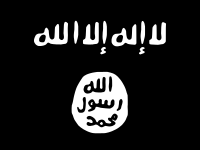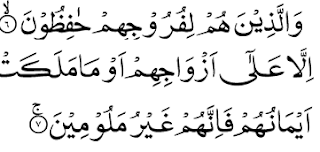Every
religion has certain rituals. They are worn as ornaments and become
the very face of religion. It is important to value these rituals in
order to situate oneself in religion. Islam is a religion that
includes two days of the year that are celebrated ritually and which
therefore have more religious significance than others: Eid-ul-Fitr
and Eid-ul-Adha.
Note
that these two festivals each have a special prayer. In fact, before
the arrival of the Messenger of Allah (pbuh) in Medina, its
inhabitants celebrated two other days of the year. When the Prophet
of Allah (pbuh) arrived there, he said, “You had two days when
you would play, but Allah (swt) has given Muslims something instead
that is better than them: the day of Al-Fitr and the day of Al-Adha.”
(Nasai)
The
days of Eid are the only festivals of the Islamic calendar.
These two days of celebration each include a special prayer. The
Muslim therefore celebrates his festivals with more prayer and
fervour in thanking his Lord for all the favours He pours on him. It
is therefore with an additional prayer that the Muslim expresses his
joy while thanking his Creator.
 And
on the occasion of the Eid-ul-Adha, it is with the sacrifice
of an animal in the name of Allah that he thanks his Lord and shows
generosity to the poor.
And
on the occasion of the Eid-ul-Adha, it is with the sacrifice
of an animal in the name of Allah that he thanks his Lord and shows
generosity to the poor.
The
term “Qurbani” is derived from the word “Al-Qurban”
which means any work that leads to divine proximity. Thus, every
religious service is called ‘Qurbah’ or holy work and
especially sacrifices. (Inset: a picture from the Hajj of 1953 when the pilgrims were able to choose the animals they wanted for Qurbani and would keep their livestock with them during the Hajj)
The
Holy Prophet (pbuh) reports that our Lord (Allah) has said, “My
servant constantly approaches me by performing additional acts of
devotion until I grant him My affection. Thus, I become his ear by
which he hears, his eyes by which he sees ... And if he asks Me
something, I grant it to him and if he seeks My protection, I protect
him.” (Bukhari).
This
day of Eid-ul-Adha leads us to reflect on the sacrifices
offered by Ibrahim (as) to his Lord: the hardships of emigration,
being thrown into the fire and being separated from his family among
others. And moreover, Allah the Exalted ordered him to sacrifice his
son Ismail (as). He submitted to the divine will and placed the knife
on the neck of his son to slit his throat.
But
Allah the Exalted decreed that Hazrat Ismail (as) was not going to be
sacrificed and he was thus spared, and this human sacrifice was
replaced by the sacrifice of a sheep. By this, Allah the Exalted
wanted to fill Muslims with benefits compared to fellow Christians
and Jews, but for that it was necessary to offer in sacrifice Ismail
(as), father-ascendant (biological ancestor) of the Holy Prophet
(pbuh). The Holy Prophet (pbuh) said, “I am the son of two
sacrificed people.” (Mustadrak Hakim) Ismail (as), the eldest
son of Ibrahim (as) and father of the Arabs, and Abdullah, the
biological father of the Holy Prophet (pbuh). Both were about to be
sacrificed.
It
is to revive the memory of the spirit of sacrifice of Ibrahim (as)
that one is called every year to sacrifice animals during the days of
Eid-ul-Adha. The sacrifice of animals during the 10th
of Dhul-Hijjah is an integral symbol of Islam. Allah the Exalted
said: “And the camels and cattle We have
appointed for you as among the symbols of Allah.”
(Al-Hajj 22: 37).














